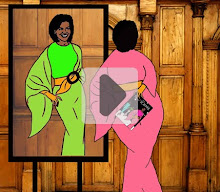WARNING: This is a long read about an even longer read. Proceed at your own peril.  How I hope the old bard was correct
How I hope the old bard was correct
Specifically, this is about an article of supreme importance to the future of the planet. No, not Greta Thunberg’s manifesto on the end of the world; it’s about what Matt Taibbi has called the Grand Opus on the Anti-Disinformation Complex: it is a 13,000 word article by Jacob Siegel at Tablet, A Guide to Understanding the Hoax of the Century. Given the Anti-Disinformation machine’s recent and egregious prosecutorial abuse, it is both timely and terrifying.
As John Sexton at Hot Air put it:
It attempts to tie together everything from the 2016 election to the Russia collusion story to the push against internet so-called disinformation by government entities with the cooperation of giant social media companies.
Taibbi’s interview with Siegel is enlightening:
It’s notable that the Anti-Disinformation machine, a clear sequel to the Military-Industrial Complex, doesn’t trumpet the virtues of the “free world” but rather the “rules-based international order,” within which (as Siegel points out) people like former Labor Secretary Robert Reich talk about digital deletion as “necessary to protect American democracy.” This idea of pruning fingers off democracy to save it is increasingly popular; we await the arrival of the Jerzy Kozinski character who’ll propound this political gardening metaphor to the smart set. [Ed. note: Jerzy Kozinski is the author of Being There, the Chance Gardner story.]
I. Russophobia Returns, Unexpectedly: The Origins of Contemporary “Disinformation”
II. Trump’s Election: “It’s Facebook’s Fault”
III. Why Do We Need All This Data About People?
IV. The Internet: From Darling to Demon
V. Russiagate! Russiagate! Russiagate!
VI. Why the Post-9/11 “War on Terror” Never Ended
VII. The Rise of “Domestic Extremists”
VIII. The NGO Borg
IX. COVID-19
X. Hunter’s Laptops: The Exception to the Rule
XI. The New One-Party State
XII. The End of Censorship
XIII. After Democracy
Appendix: The Disinfo Dictionary
Here are just a few snippets to entice you.
COVID-19:
By 2020, the counter-disinformation machine had grown into one of the most powerful forces in American society. Then the COVID-19 pandemic dumped jet fuel into its engine. In addition to fighting foreign threats and deterring domestic extremists, censoring “deadly disinformation” became an urgent need. To take just one example, Google’s censorship, which applied to its subsidiary sites like YouTube, called for “removing information that is problematic” and “anything that would go against World Health Organization recommendations”—a category that at different points in the constantly evolving narrative would have included wearing masks, implementing travel bans, saying that the virus is highly contagious, and suggesting it might have come from a laboratory.
Hunter’s laptop:
The story of the laptops has been framed as many things, but the most fundamental truth about it is that it was the successful culmination of the yearslong effort to create a shadow regulatory bureaucracy built specifically to prevent a repeat of Trump’s 2016 victory.
It may be impossible to know exactly what effect the ban on reporting about Hunter Biden’s laptops had on the 2020 vote, but the story was clearly seen as threatening enough to warrant an openly authoritarian attack on the independence of the press.
The NGO Borg:
Virtually overnight, the “whole of society” national mobilization to defeat disinformation that Obama initiated led to the creation and credentialing of a whole new class of experts and regulators.
The modern “fact-checking” industry, for instance, which impersonates a well-established scientific field, is in reality a nakedly partisan cadre of compliance officers for the Democratic Party. Its leading organization, the International Fact-Checking Network, was established in 2015 by the Poynter Institute, a central hub in the counter-disinformation complex.
The counter-disinformation Complex:
Since 2016, the federal government has spent billions of dollars on turning the counter-disinformation complex into one of the most powerful forces in the modern world: a sprawling leviathan with tentacles reaching into both the public and private sector, which the government uses to direct a “whole of society” effort that aims to seize total control over the internet and achieve nothing less than the eradication of human error…
Perhaps it is not a coincidence that the fields that have been most aggressive in cheerleading the war against disinformation and calling for greater censorship—counterterrorism, journalism, epidemiology—share a public record of spectacular failure in recent years. The new information regulators failed to win over vaccine skeptics, convince MAGA diehards that the 2020 election was legitimate, or prevent the public from inquiring into the origins of the COVID-19 pandemic, as they tried desperately to do.
And there’s even a bone for the I-Hate-Meghan-Markle brigade:
How is it that so many people could suddenly become experts in a field—“disinformation”—that not 1 in 10,000 of them could have defined in 2014? Because expertise in disinformation involves ideological orientation, not technical knowledge. For proof, look no further than the arc traced by Prince Harry and Meghan Markle, who pivoted from being failed podcast hosts to joining the Aspen Institute’s Commission on Information Disorder. Such initiatives flourished in the years after Trump and Brexit.
Then there’s the Uni-party:
In February 2021, a long article in Time magazine by journalist Molly Ball celebrated the “Shadow Campaign That Saved the 2020 Election.” Biden’s victory, wrote Ball, was the result of a “conspiracy unfolding behind the scenes” that drew together “a vast, cross-partisan campaign to protect the election” in an “extraordinary shadow effort.” Among the many accomplishments of the heroic conspirators, Ball notes, they “successfully pressured social media companies to take a harder line against disinformation and used data-driven strategies to fight viral smears.” It is an incredible article, like an entry from the crime blotter that somehow got slipped into the society pages, a paean to the saviors of democracy that describes in detail how they dismembered it.
It is likewise noteworthy that the Patriot Act was used to accomplish much of this mischief; yes, I think it’s okay, although useless, to say “I told you so.”
Siegel wraps it with this thought:
A siren song calls on those of us alive at the dawn of the digital age to submit to the authority of machines that promise to optimize our lives and make us safer. Faced with the apocalyptic threat of the “infodemic,” we are led to believe that only superintelligent algorithms can protect us from the crushingly inhuman scale of the digital information assault. The old human arts of conversation, disagreement, and irony, on which democracy and much else depend, are subjected to a withering machinery of military-grade surveillance—surveillance that nothing can withstand and that aims to make us fearful of our capacity for reason.
Definitely worth the effort to read, Siegel’s article is behind a paywall but easily worth the price of a month sign up, but it’s also available for a free 7 day trial period.
It is somewhat ironic that in the month that 3 of the world’s largest religions celebrate 3 very different holidays of faith that the world appears to falling under thrall of the godless who would be gods themselves. Pray for us dear Lord.
 Ah, Andrew: How We Miss You
Ah, Andrew: How We Miss You
Note: I have another early appointment so I’m posting overnight, would someone please post the new link for me?

























